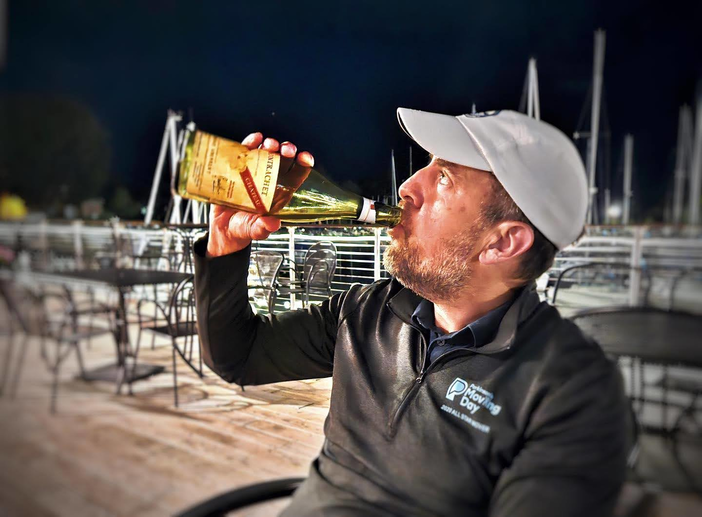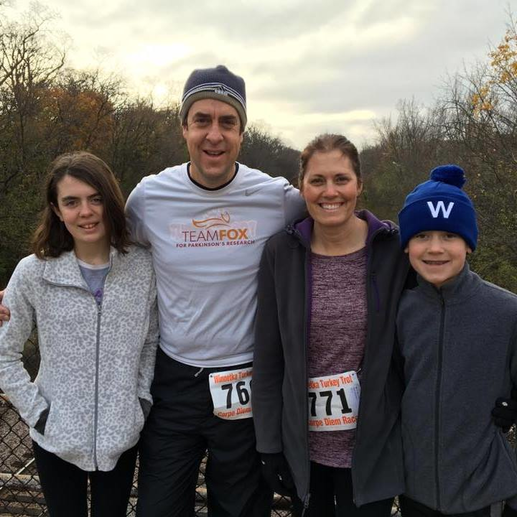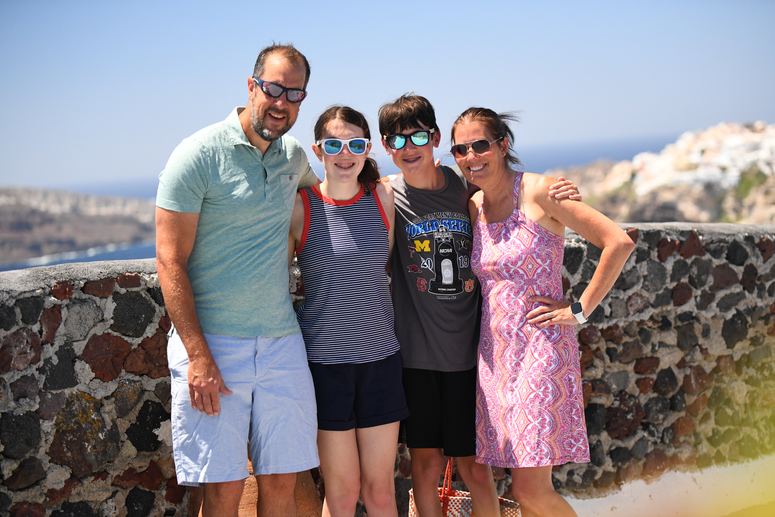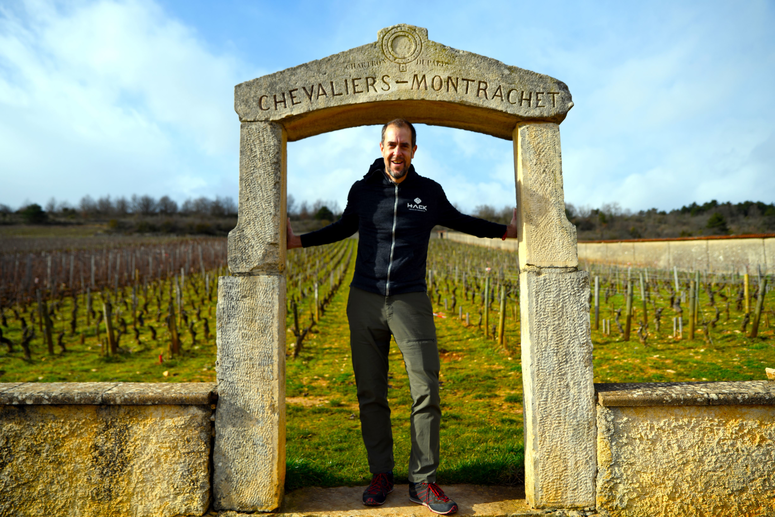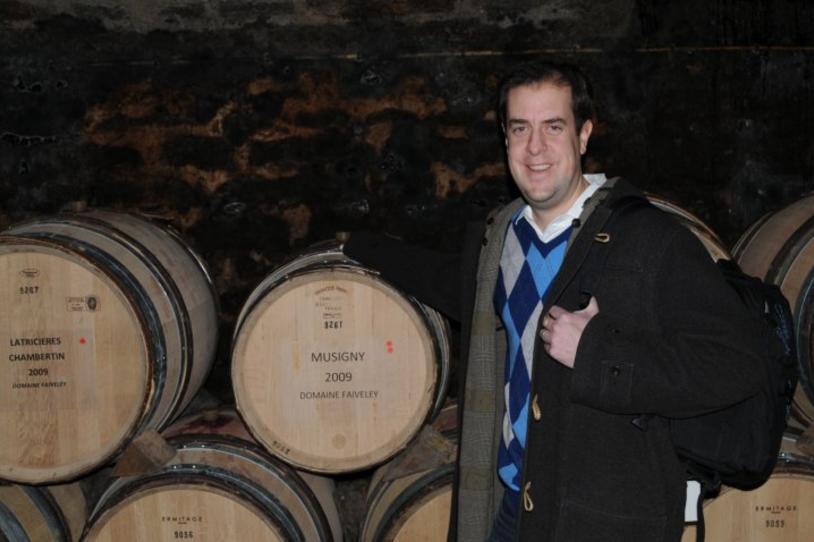
Editor’s Note: The Michael J. Fox Foundation (MJFF) Patient Council member and Team Fox champion, Bill Bucklew, was diagnosed with Parkinson’s disease in 2012. One of his earliest signs was smell loss. He penned this letter about his experience with smell loss.
MJFF is asking everyone age 40 and up without Parkinson’s disease to take a free scratch-and-sniff test. Help researchers better understand the connection between smell loss and Parkinson’s risk. Get started today.
I have found that the richness in life can often come from the margins of sensory perception.
One of my favorite things to do in the summer is swim in Lake Michigan, particularly at sunrise. There's something very special about it. The lake can be an incredibly calming and peaceful expanse. Swimming is further enhanced by the background “music” of gentle waves lapping onto the shore, the body-balancing stretch from swimming — all working toward restoring my mind and body in ways I don’t fully understand.
Biking to and from the beach was a means to an end, until I discovered that the morning air actually has a vibrancy to it — I used to say, “you can smell it.” Peddling through whiffs of baked bread from the Abbey Pâtisserie, fresh cut grass near Central school, even a trace of the commuter bus exhaust near the B’hai Temple combine into one singular impression, a good feeling. This feeling is like what the smell of a favorite childhood meal evokes, a mixture of recollections and emotions. These olfactory “signatures” are too complex and personal to articulate to someone else. Yet, somehow, with just one whiff, I know and feel it immediately, it’s an ingrained part of me. Sense of smell is important, beyond its immediacy.
After a few years in the adult world, I developed a lifelong passion for food and wine. I dove in headfirst. To hone my cooking skills I joined vegetable co-ops, attended immersive cooking experiences and cooked hundreds of dinners for friends and family. I never tired of it. I also became a part of numerous wine groups where I participated in blind tastings (which is the only sport I've discovered more humbling than golf). I continually educated myself on everything in the global wine world from agriculture and winemaking to tastings and history. It was challenging and rewarding. I loved it.
In 2016, four years after I learned that I had Parkinson's disease, I discovered something quite interesting. I’m with one of the more formal groups that I belong to, and we are about an hour and a half into contemplation on 15 bottles of wine, when we start the discussion. I start a conversation about bottle number five because I really like it, but as I'm talking, it's clear from the group body language, that something is wrong. Then, one of the members just blurts out what everyone in the room, except for me, already knew — that the bottle was flawed, also known as “corked” which in this case, means a very strong mildew quality to the nose and to the palate. To everyone else, it is undrinkable.
Historically, I've had good sensitivity to detecting even mildly flawed bottles and this, I was told, was quite overt. So, I took a second deep dive into the flawed wine again, but I really wasn't getting it. I couldn't smell. Touting a bottle as great in a room of wine experts, to which the bottle is clearly flawed, is embarrassing, and certainly undermined my overall credibility, absent an explanation.
My first reaction when I got home that night was to go around, smelling a bunch of random things — candles, herbs, spices, etc., to see if I could perceive a change. But I couldn’t; it's so subjective. How do you really know if your sense of smell is diminishing over time? Especially when it's a slow degradation over the years.
I'll never forget that day and I'm sure there's some people in the wine group who haven't either (I did eventually educate everyone on the issue). Over the last five years I have become focused on lifestyle factors that can affect Parkinson’s disease progression and significantly reduced my consumption of alcohol as a result. I have also stepped down from most of the wine groups and even sold a portion of my wine collection, which I am perfectly okay with as I have maintained many great friendships throughout this process, which is most important to me.
I may not be able to smell the bread breaking in the café as easily as before. But I have noticed that I pay more attention visually to details around me which has been rewarding, as I jump back into an old hobby, photography, which I am really enjoying. I still love to cook and do so regularly, and have met new challenges, head-on, like sustaining a largely vegan diet for the last four years. However, as we know, sense of smell affects taste too, which probably poses a larger risk for those that I am cooking for, not me.
The Michael J. Fox Foundation’s landmark study is exploring the link between smell loss and brain disease. If you’re age 60 and up without Parkinson’s, you can contribute to this important research. Request your free scratch-and-sniff test today and share this opportunity with your loved ones.
Photo Gallery

